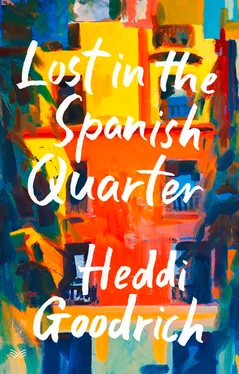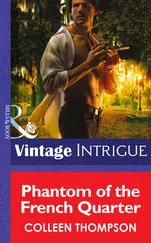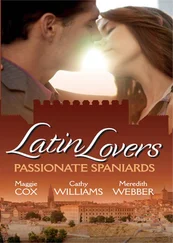I COULDN’T QUITE picture Pietro’s face. Our encounter had been so very brief and I’d even rushed it to a premature conclusion. The harder I tried to conjure up his image, the more it slipped away, until it was no more than a collection of indistinct features blending with the many eyes, noses, and mouths all around me, like those in the audience at my glottology lecture in the Astra Cinema. Fearing I would lose it forever in the crowd, I told myself not to dwell on it and to focus on my lesson instead.
The theater was warm and dark, womblike, the comfy seats upholstered in red velvet, my professor’s voice a low frequency. I couldn’t be dragged away from here even by wild horses, I thought to myself before realizing it was not a thought at all but a line from the second song, by the Rolling Stones, on Pietro’s mixed tape.
I refocused on my notebook, where I was attempting to transcribe every word coming from the stage. “All the world’s languages vary according to what we call taxa, or language families,” I jotted down in tidy, compact letters. “Colors are a type of significant taxonomy: in fact, we might even say there is such a thing as ethnic chromatism …”
“Please shoot me now.” The dark-haired girl next to me widened her made-up eyes, adding in a low whisper, “Signorelli’s head looks like an Easter egg, don’t you think?”
“He’s really good, though.” Actually, to me he seemed like a rock star.
“Sure, but he can’t teach. He just reads straight from the textbook.”
It wasn’t entirely true, but I found myself once more trying to shake the familiar fear that I’d enrolled in a university in shambles.
“I’ve seen you a bunch of times in Russian class. What’s your name?”
“Eddie, and yours?”
“Are you the foreigner?” My classmate leaned in close, too close, like I had something magical that could rub off on her. I didn’t know her but I recognized that hunger, so widespread in the Department of European Languages, that yearning to be beamed up to a galaxy far, far away. She fired breathless questions at me: “Where are you from? Are you German? Why did you come to Naples , of all places?”
“I’m from … the Spanish Quarter.”
I Quartieri Spagnoli. I knew how to lop off the final vowels and palatalize the sp in the Neapolitan manner and I’d learned to tame the awe in my eyes when I roamed the city, but there was no hiding my un-Italian features. In fact, the girl didn’t fall for it, but at least she steered her attention off me and back to my professor, who deserved it far more.
“… a distinction between bright white and dull, plain white. In Greek, melas is a radiant black, a concept that was completely lost in the shift from ancient to modern languages. And it’s not clear why. In antiquity there was a particular focus on luminosity …”
“That’s all I can take; I’ll just read the book at home.” The girl closed her notebook, murmuring with palpable joy, “In Sala Consilina, that is. I’m catching the train tomorrow morning.”
“Sala Consilina …”
“It’s in the province of Salerno. You wouldn’t know it, it’s just a nothing town …”
I could see she was embarrassed. I wanted to tell her not to worry because if anyone was provincial it was me, having grown up in one characterless suburb after another. But she wouldn’t have understood. It would have been an unthinkable concept for an Italian: hailing from the provinces was such a historical and deeply ingrained humiliation, but mine was a modern shame—tangled up with that typical American uneasiness of knowing that I was, on some fundamental level, one of the privileged.
“Have a safe trip then.”
“Happy Easter.”
I turned again to look at my professor. Excluding the bald head, I thought, one day that will be me. Signorelli truly was a brilliant man, endowed with the ability not only to convey fascinating tidbits on the evolution of language but also to trigger surprising insights into humanity itself. These nonverbal, or perhaps preverbal, inspirations would come to me during class or even in the most unlikely of settings, sparks of knowledge I could never catch hold of and write down before they were gone like fireflies.
But once in a while something amazing would happen. Several of those wordless sparks, which I’d been unable to capture but apparently hadn’t left me for good, would start to gather on their own and whisper to one another. Secrets in a foreign language, maybe an animal language, that all together made a low, humming sound. Within seconds that buzzing would grow in intensity, a strange and exciting cacophony like instruments warming up before a concert. Gradually those unintelligible sounds would begin to slide into place and consolidate into one overriding idea that would explain everything. And it wouldn’t be just a simple statement but a roar, something so unheard of, so astonishing, it might even be deafening. The truth .
If only I could hold my breath that long, I thought, for that crescendo of notes to meld into one whole and boom their mysterious message, then I would know . I would understand the primeval urges of man, the true reasons why people do what they do and are who they are, since the dawn of time. Art, war, religion … love.
I started humming “Wild Horses” to myself. All at once I felt trapped by my seat, by that windowless cinema. I wanted to break free, run home, and listen once more to the tape. To listen between the lines.
I got up and left. University students streamed out of cafés and used bookstores, forcing the cars to slow and bend to their will. Here the city was ours. From our tribe I spotted Costantino, a Japanese major, and Rina, who studied French, but unable to stop in the crowds we simply waved excitedly to each other. I was going against the current. It seemed almost as though all the other students were heading away from the center, toward the train station. By the end of tomorrow they would all be back in their hometowns. People brushed past me, even pushed me, but it was never done with malice, only familiarity. Yet I kept to my path, the street known as Spaccanapoli, a long and deliberate cut through the heart of Naples that would lead me back to the Spanish Quarter.
The Easter break freed me to visit the Carmine Church. I didn’t know the way there, so for once I’d taken the bus. The Sanità neighborhood felt run down, almost unwell. A knife struck a cutting board a few stories up, a motorbike stirred lethargically in the distance. Certainly not the kind of place to use my camera, the Minolta my dad had passed down to me. Instead I pulled out my well-worn map, waking it from its comfortable folds. Then I veered left.
The streets tightened around me like vises and had a mind of their own. With every step my shoes gave me away, clapping on those typical Neapolitan cobblestones—volcanic basoli , large flat slabs with chisel marks that turned the streets into giant, moth-eaten quilts. My footsteps were regular, almost a musical rhythm. I realized that I had, in fact, yet another of Pietro’s songs in my head, a U2 song that was dictating my pace: “Where the Streets Have No Name.”
I came to a stop before sheer yellow cliffs of volcanic tuff. It was like being inside a desert canyon. Everything there was the color of sand, but the sun had no business here. Oozing from natural caves were houses, very poor dwellings without windows that appeared pinned down by the weight of the rock. A pregnant woman in her pajamas stood in a doorway. Sometimes, thinking myself invisible, I gave in to the luxury of staring. When she saw me coming, she shut the door.
I walked along that far edge of the neighborhood until I came to a church. Although it too was half inside a cave and as yellow as the cliff above it, the church seemed not so much a product of the rock as an ornate statement of uprising against circumstance.
Читать дальше












